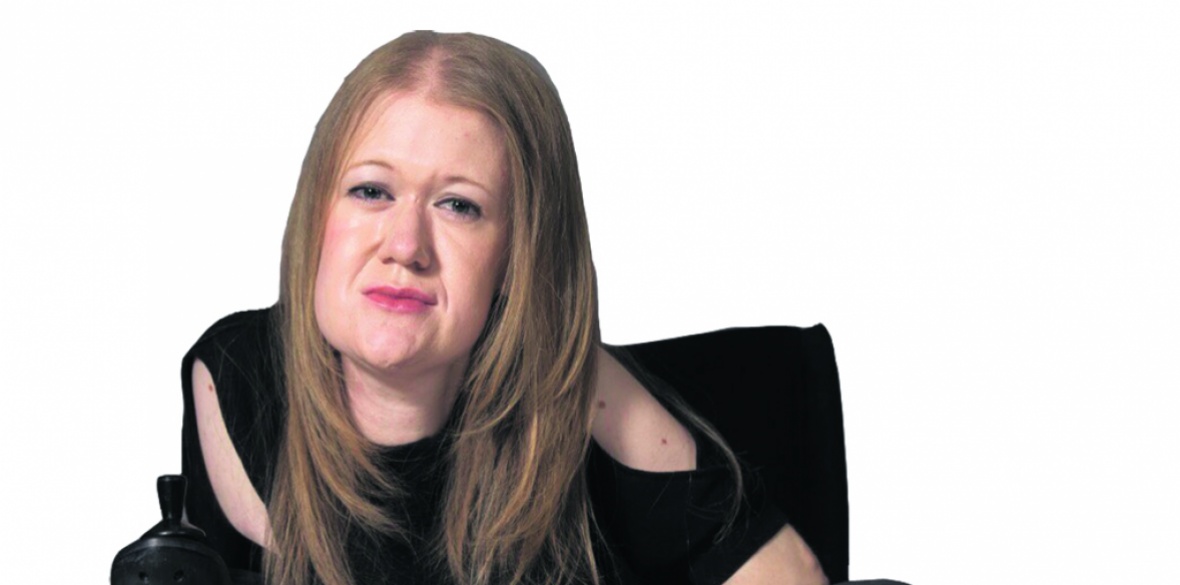This is the last article you can read this month
You can read more article this month
You can read more articles this month
Sorry your limit is up for this month
Reset on:
Please help support the Morning Star by subscribing here
JOURNALIST Frances Ryan, recently longlisted on the Orwell Prize for Exposing Britain’s Social Evils, has for the past seven years reported for the Guardian on what is really happening to disabled people due to austerity.
In doing so, she has provided an ongoing reality check to the lies, slurs and misleading remarks coming from Iain Duncan Smith, Esther McVey, Amber Rudd and others.
In recent years she has been focusing on individual lives. Those people with disabilities facing multiple cuts coming from all directions.
It was this work that attracted publisher Verso, which wanted Ryan to write a book on an issue she felt needed particular attention.
“I thought the alarming rolling back of disability rights was a very urgent topic,” Ryan said.
Ryan became chronically ill at the start of writing the book, so it became a hard project to deliver.
“It certainly was a challenge!” she admits. “But really that spurred me on. I’m always conscious it takes a great deal for the people I’m interviewing to share what are often intimate details of their life and put their stories out in the world — people who themselves are dealing with mental and/or physical problems — and I wanted to do that justice. It felt an important book to get out.”
The result is Crippled: Austerity and the Demonisation of Disabled People, a devastatingly on-point critique of austerity politics and the worsening attitudes towards those with disabilities.
With chapters dealing with poverty, work, independence, housing, women and children, she describes the personal cost to disabled people using real-life examples backed up by evidence.
Ryan said she was aware of ministers dismissing personal accounts by saying the examples were simply isolated incidents: “So, I used a two-pronged attack, an individual shows the human cost of a policy and research provides the evidence of the scale of the problem. There’s really no denying what’s happening.
“It also seemed very fitting to put disabled people front and centre. So often disabled people (and people on benefits generally) are either shut out of the media or badly misinterpreted, whilst at the same time we’re seen as passive or ‘spoken for.’ As a disabled journalist, I wanted disabled people’s voices to be heard.”
In Crippled, Ryan illustrates how the toxic coverage of the disabled and other marginalised groups moves from print onto the street, fuelling hate-crime. Although, there have been some slight improvements in coverage, there is still the question of how we can make the media more responsible.
Ryan thinks that part of the answer is a more representative media. “Getting more disabled people, as well as journalists from working class and ethnic minority backgrounds, into newsrooms is long overdue. Of course, a journalist shouldn’t have to have had direct experience of an issue to deliver fair coverage. But if you’ve got a media full of people who’ve never, say, applied for benefits, worked a minimum wage job, or lived in social housing, you’re never going to get a media that really understands and prioritises these issues.”
In part because of the negative media coverage, which has, without question, accepted government spin, Ryan feels society is yet to reach a “tipping point” where everyone is aware of the damage caused by austerity. She hopes that Crippled can contribute to this understanding by encouraging a conversation about Britain’s relationship with disability and why a safety net is so precious.
Ultimately, Ryan says, this knowledge is required because society itself is at risk: “Using the example of the treatment of disabled people, we can view the health of society as a whole.
“The mass removal of support for the disabled, along with the rise in demonising language, has contributed to a wider downturn in British politics.
“There has been a shift from empathy and solidarity, towards pernicious policy making and a meaner, shrinking safety net.
“We often say the best test of a civilised country is how it treats disabled citizens. When wheelchair users are queueing at food banks, that’s a pretty stark example of how grossly Britain is currently failing.”
This was echoed in a report from the United Nations rapporteur on extreme poverty. Philip Alston said: “Much of the glue that has held British society together has been replaced by a punitive, mean-spirited and often callous approach apparently designed to impose a rigid order on the lives of those least capable of coping.”
In Crippled, Ryan reminds us of the gains in disability rights over the latter half of the 20th century, which came about from campaigners striving to improve the lives of disabled citizens.
“This was really important for me,” Ryan said. “That there was a sense of hope and autonomy in the book — that disabled people being hungry or isolated in one of the richest nations on Earth isn’t somehow inevitable. That the increase in hardship for disabled people over the past decade has been a direct result of political choices.”
With the stakes so high, she is certain we are at the brink of real change, which for the lives of disabled people could go either way: “I don’t think there’s ever been a more pressing time to vote in a Labour government and renew the fight for the welfare state.”
Crippled: Austerity and the Demonisation of Disabled People by Frances Ryan is published by Verso on June 11.
Ruth F Hunt is an author and freelance journalist.











